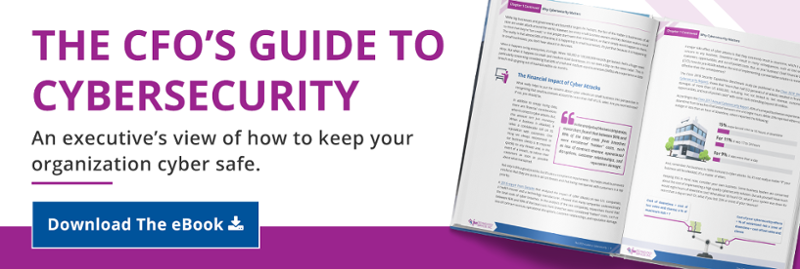I think it’s pretty safe to assume that virtually every business has at least one computer. In fact, it’s safe to say that nearly every employee at every computer company has a computer. These technological marvels help to make a number of daily business functions simpler, saving valuable time and making your business more efficient
Computer networks are part and parcel of running an efficient business. They’re also becoming increasingly sophisticated — operating in a hybrid format that uses on-premises and cloud applications, mobile devices, and enables remote access that provides always-on connectivity. However, on the flip side, this also means that security failure points are almost infinite. This is particularly worrisome for clients whose personally identifiable information (PII) and other sensitive data are put at risk in the event of any cybersecurity attacks or data breaches.
According to the 2017 Data Breach Year-End Review by the Identity Theft Resource Center (ITRC) and CyberScout, “The number of U.S. data breach incidents tracked in 2017 hit a new record high of 1,579 breaches.” This is a significant increase — nearly 45% — over the record number of breaches reported the previous year.
As IT service professionals, this is the landscape we work in on a daily basis when we’re managing the security of our clients’ networks. So, how does cyber liability insurance fit into this discussion?
What Cyber Liability Insurance Isn’t
Much like regular insurance for any business or personal item, cyber liability insurance isn’t something that prevents bad things from happening. You don’t purchase this type of insurance with the goal of preventing a breach or security incident from taking place. It’s also not something that will pay for the cost of getting your network “secure” after an incident happens.
What Cyber Liability Insurance Is
A robust cyber liability insurance policy is a form of “security blanket” to help a business weather the storm in the event of a data breach or network security failure. It’s now easier than ever to obtain this type of insurance. However, what helps to set this insurance coverage apart is that it usually covers both first-party and third-party expenses. What does this mean, you wonder?
First party expenses can include:
- Costs of notifying customers of a breach
- Crisis management and public relations (PR) costs related to mitigating damage to your brand or reputation
- Costs associated with business interruptions
- Hiring costs relating to the forensic investigation of the data breach
- Costs of offering credit monitoring to clients as a result of the breach
Third-party costs, on the other hand, can include:
- Expenses and damages relating to claims
- Legal defense costs
- Regulatory defense costs
It also is important to note that there are some potential exclusions that cyber liability insurance may not cover. These points of concern include:
- If your vendors’ systems are breached, you may not have coverage even though your customers still have exposure
- Cyber liability insurance which may not cover both electronic data breaches and information that is physically stolen from your trash (Be sure to check the fine print of your policy information to verify its coverage)
- Debit/credit card fraud that is rarely covered
- Regulatory penalties which may not be covered
Why You Need It!
As hacks, data breaches, and cyber crime hit record highs each year, it seems like it’s inevitable for a business to be hit. So, the question isn’t “what’s the risk?” Rather, it’s “how prepared do you want to be for when it happens?” Only you would know this for certain. However, the combination of your Los Angeles IT services provider, insurance agent, and your certified public accountant (CPA) would certainly serve as a strong trio of power to provide you with valuable input for your decision.
At FPA, we have the experience of working with our clients to assist in the decision (“do we need it?”), as well as completing the technical survey to get it. So, if you’d like to learn more about cyber liability insurance or need other assistance in this area of concern, please feel free to give us a call to discuss your option
How do you think this information has been helpful? What are some of the other valid reasons for investing in cyber liability insurance? Share your thoughts in the comments box below or send me an email if you’d like to chat about this in more detail.
/fpa-logo-tagline.gif)






